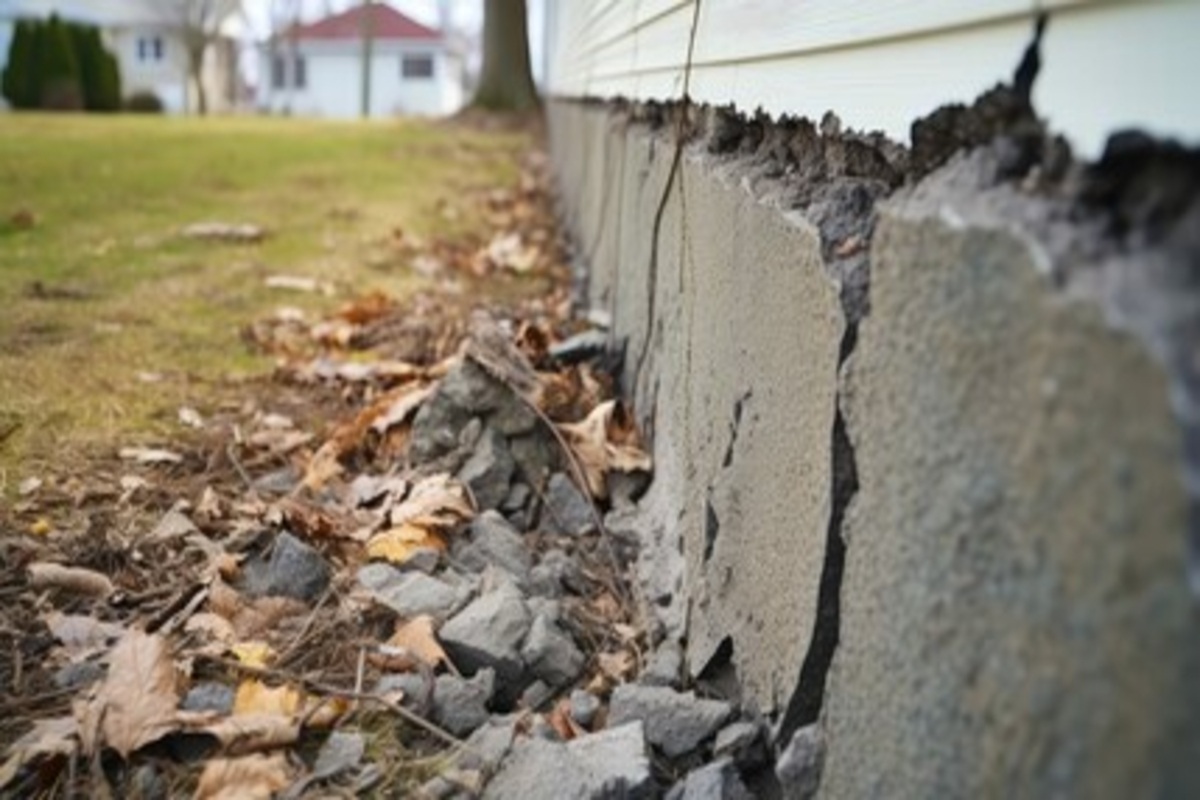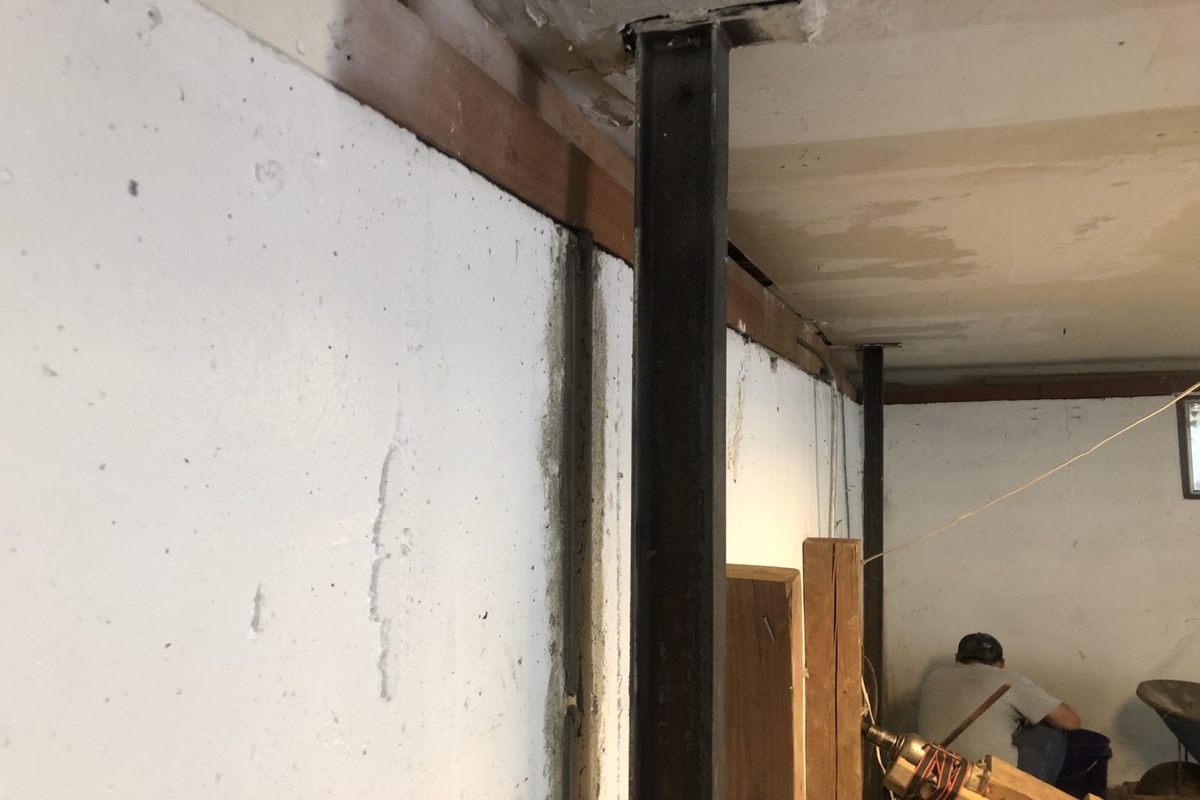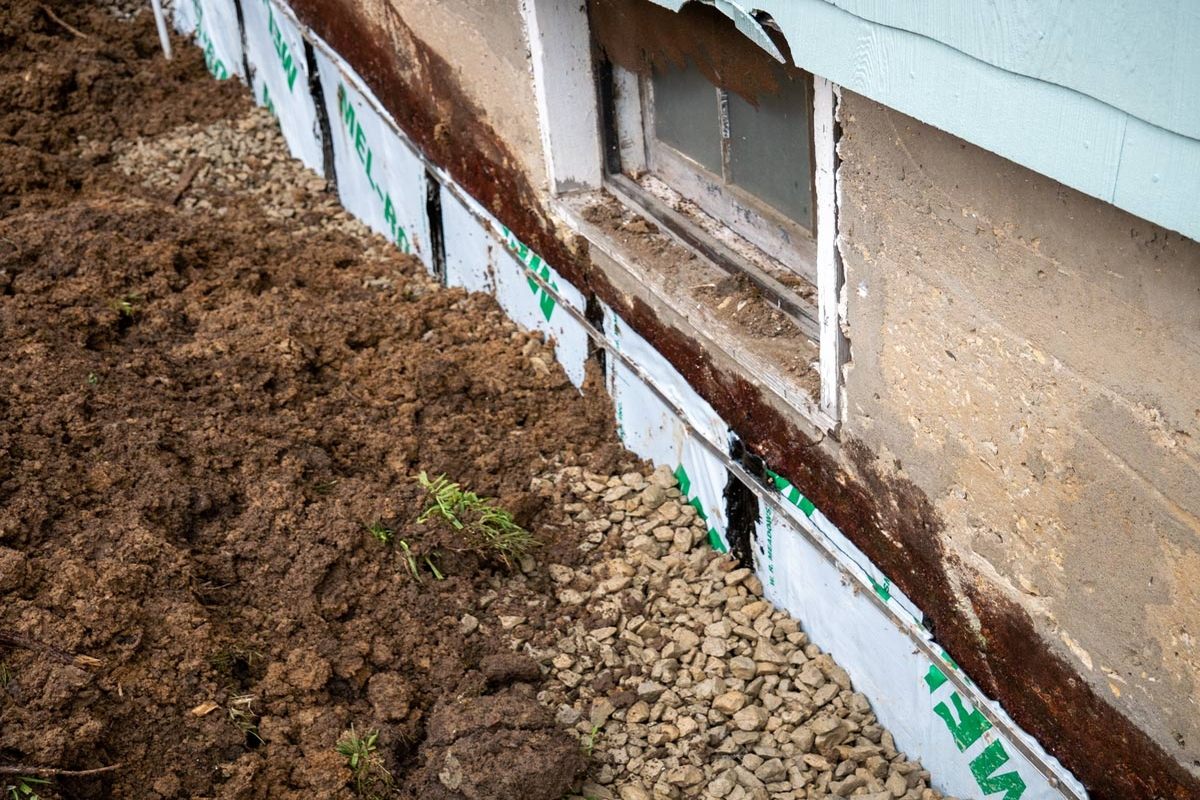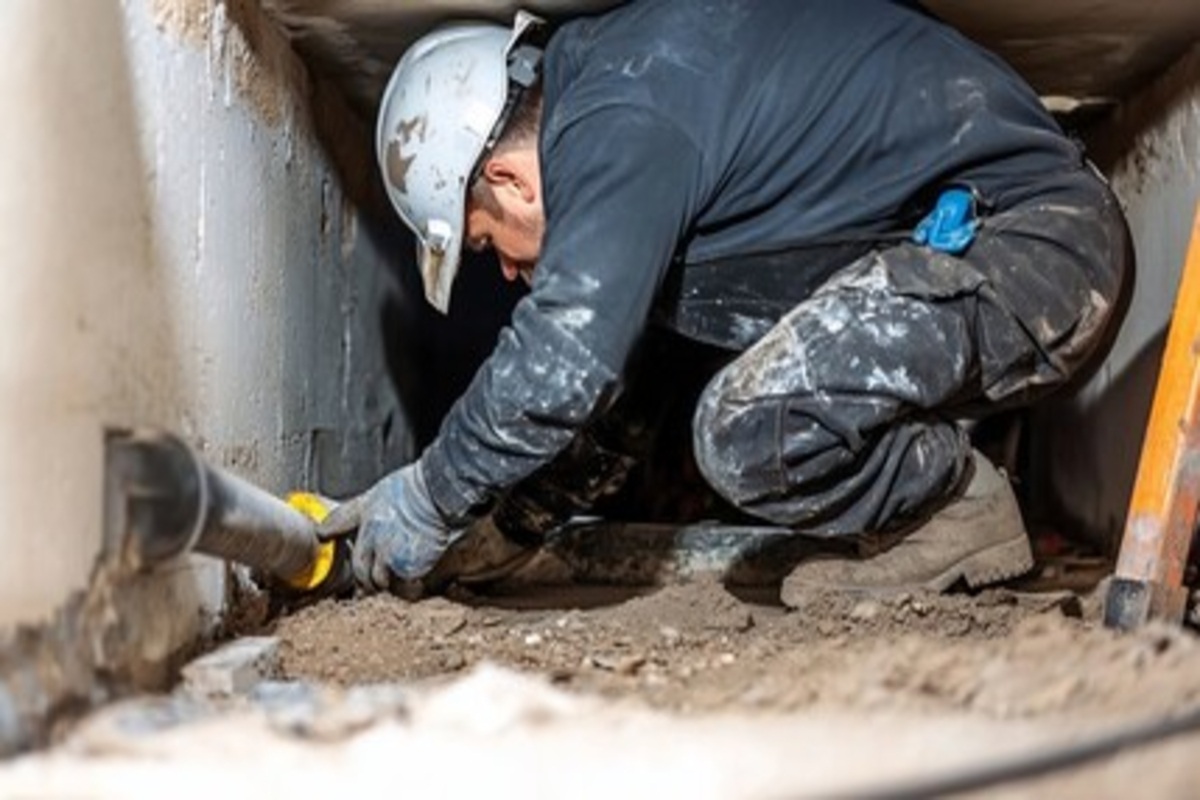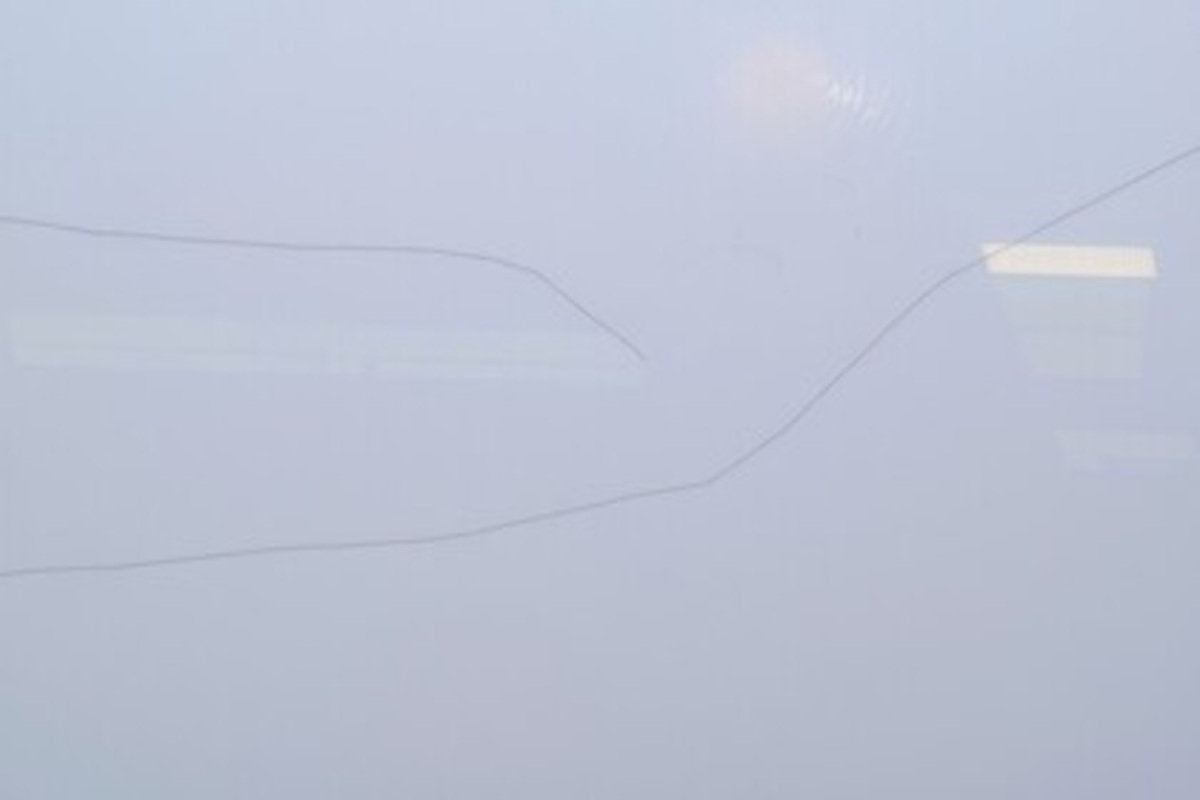French drains are a popular solution for homeowners tackling water management challenges. The stability of a home’s foundation can be compromised by excess water or lack thereof. Understanding the pros and cons of French drains is crucial in this context. Excessive water increases hydrostatic pressure, potentially damaging the foundation, while insufficient water can lead to soil contraction and house settling.
French drains are designed to reroute water away from the home, safeguarding the foundation. In this guide, we’ll explore the workings, benefits, and potential downsides of French drains and their role in maintaining your home’s structural integrity.
How French Drains Work
A French drain is designed to divert water away from a home’s foundation. It involves digging a trench outside the home, usually from a higher to a lower elevation, to direct water away from the structure. This system is an integral part of water management, complementing gutters and ensuring a positive grade away from the home.
At KC Pier, we specialize in installing French drains and offer a range of foundation repair services, including waterproofing, crack repair, and sump pump installation to manage water that penetrates under or into a home.
Understanding Water Management
Effective water management for homeowners involves addressing both topical (surface) water and the water table beneath the home. Topical water includes rainwater from gutters or natural precipitation. French drains, along with proper guttering and grading, can effectively manage this surface water. However, it’s crucial to note that French drains do not control the water table level beneath a home, typically managed by sump pumps.
The Importance of Consultation
Before deciding on a French drain, homeowners should understand the specific water management issues they face. A French drain might not address certain types of water-related problems, such as those related to the water table. Therefore, consulting with professionals like KC Pier can provide clarity. We offer free consultations to evaluate your home’s water management needs and suggest appropriate solutions.
Pros and Cons of French Drains
Advantages
- Effective Water Management: French drains are primarily advantageous because they efficiently divert water away from the home, protecting the foundation.
- Simple Design and Operation: Their design is uncomplicated, making them a reliable option for most homeowners.
- Long-Term Structural Protection: By managing water effectively, French drains contribute to the longevity and stability of your home’s structure.
Disadvantages
- Aesthetic Considerations: One potential downside is the aesthetic impact. French drains typically involve a layer of gravel, which may not align with every homeowner’s landscaping preferences. Some choose to cover this with a thin soil layer, but traditionally, these drains are left open for optimal water seepage.
- Limited Scope: It’s important to remember that these drains are designed for surface water management and do not address issues with the water table beneath a home.
Conclusion
French drains offer a straightforward, effective solution for managing surface water around a home, playing a vital role in protecting the foundation from water damage. However, it’s important to consider both their advantages and limitations, especially regarding aesthetic impact and scope of water management. For homeowners unsure about the suitability of French drains for their specific needs, professional consultation is advisable.
At KC Pier, we are committed to helping homeowners make informed decisions about their water management strategies. Feel free to contact us for more information or to schedule a consultation.


